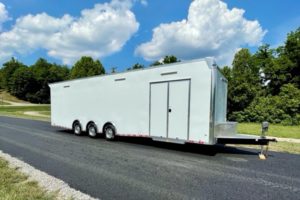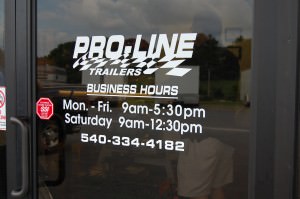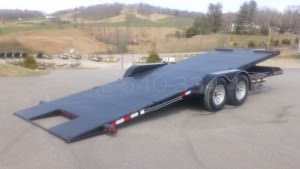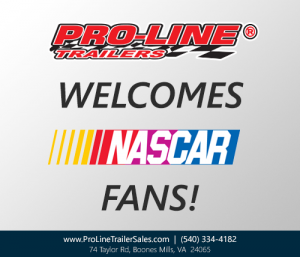Picking Out the Best Trailers This Spring: Questions To Ask
Analysts expect the automotive trailer industry’s market size to grow more than $4 billion by 2026. More people and businesses are raising the demand, but choosing the best trailers isn’t always easy.
Are you planning on buying a new trailer this spring? There are several important factors you need to consider before making your selection.
The following guide will explain the questions you need to ask before investing in a trailer to make the process simple.
What Is the Intended Use?
There are many important uses of trailers and there are certain types for different jobs. You should think carefully about what you’ll use your trailer for before making a purchase.
Enclosed trailers are perfect for keeping valuables protected from the elements. They’re also used as vending trailers, mobile workstations, and living quarters.
If you don’t need walls or a ceiling, utility trailers might be for you. They’re great for transporting landscaping equipment and lawnmowers. You can also use them to move furniture, haul trash, and even carry small vehicles.
Equipment trailers work well for heavy-duty jobs with bigger payloads. This might be the right trailer if you plan to transport heavy machinery.
Perhaps you have even more specific trailer needs in mind. Open car trailers are great for transporting vehicles and livestock trailers are for large animals. Dump trailers help to easily empty loaded materials to a new location.
Many of the trailers previously mentioned have multiple uses. However, the way they’re enclosed, size, and how they unload are very important if you have a specific job in mind.
What Can Your Vehicle Handle?
Consider the weight of the load you’ll transport and your vehicle’s weight. Evaluate the gross combined weight rating to make sure the trailer is compatible. This gives the trailer’s max weight towing capacity.
Then, find the maximum towing weight in your owner’s manual to protect your engine. Subtract the weight of the trailer and that’s the load limit that your vehicle can pull.
What’s the Type of Hitch?
Bumper-mounted hitches are the most affordable option. However, you’ll need a gooseneck hitch for models with 36 feet of floor space and up.
There are also weight-distribution hitch options for more advanced towing. Always consider things like the number of cars and the total weight you’re transporting to remain safe.
Does the Trailer Pass Inspection?
Always thoroughly inspect a trailer before purchasing it. Start with the tires and make sure there are no holes or cracks. They should have even wear and be able to carry the intended load without issues.
Next, check the trailer’s bearings. They should be lubricated and seated properly. Make sure they’re not sitting side by side or up and down.
Make sure to ask the seller about the trailer’s brakes. Inspect the pads, shoes, rotors, drums, and magnets for issues.
The trailer’s suspension shouldn’t have cracks in the leaf springs or spring hangers. The trailer’s ramps shouldn’t have cracks either and they should be straight and level.
Finally, check the trailer’s hitch. Make sure it latches and unlatches correctly. Make sure there are no missing parts on the hitch.
What’s Your License?
Review your license and make sure it allows you to tow the trailer you’re buying. You might have to take an additional test to pull the trailer. This usually depends on how long ago you got your license.
Your state might also have federal length guidelines for trailers. It’s important to check for these guidelines if you intend to buy a longer trailer.
What’s Your Vehicle Registration?
Your type of vehicle might decide if you need to upgrade its registration. For example, a diesel truck might limit your trailer options due to its weight rating.
These ratings don’t always require upgrading your registration to pull larger trailers. However, check your local laws and the laws of surrounding states if you intend to drive across state lines.
Should You Buy a Used Trailer?
You might be able to save money by buying a used trailer, but that comes with additional questions to ask.
First, does the used trailer require any fixes? If so, how much will the repairs cost? That initial bargain price might not look as attractive once you add up repairs.
Is it complete and ready to haul heavy equipment regularly? Does it meet the criteria for your intended trailer use, or does it need modifications?
Does it pass the previously mentioned trailer inspection? It might be best to buy new if you spot any red flags. Repairs are expensive, but a bad trailer could also damage the valuable items it’s hauling.
Do you want a warranty for your trailer? Most dealers don’t offer warranties for used trailers. Once you leave the lot you’re responsible for any issues that occur.
Storage Conditions
Make sure you measure the trailer’s size and decide if you have enough storage space for it. Some homeowners associations have regulations about trailer storage.
What’s the weather like where you’ll be using your trailer? Enclosed trailers might be good if you live in an area that gets a lot of rain or snow.
Buying the Best Trailers
Now you know that buying the best trailers comes down to asking the right questions. Always consider your budget, storage space, vehicle type, and intended trailer use. Also, don’t forget the trailer inspection checklist.
Remember this guide and start shopping for your new trailer with confidence. Please contact us with any remaining trailer questions you have.





